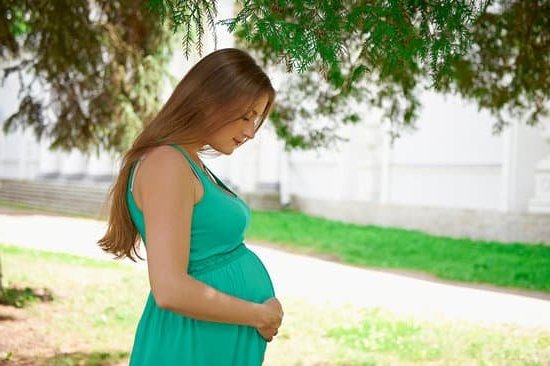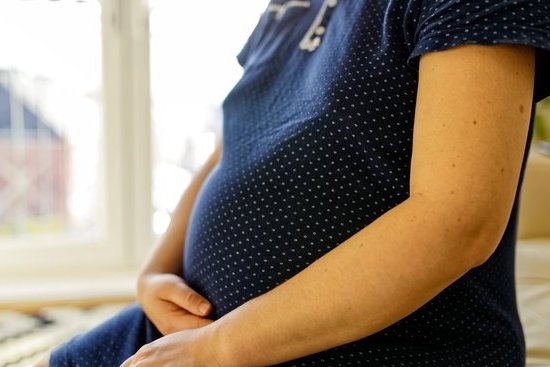Can papaya cause miscarriage in early pregnancy? This question has been a topic of debate and concern among expectant mothers for generations. The myth surrounding the potential risks of consuming papaya during pregnancy has led to confusion and apprehension. In this article, we aim to explore the truth behind this belief by delving into the nutritional benefits, historical uses, scientific evidence, and safety guidelines regarding papaya consumption during early pregnancy.
Papaya is a delicious tropical fruit known for its rich flavor and numerous health benefits. It is packed with essential nutrients such as vitamins A, C, and E, as well as folate, potassium, and fiber.
Despite its impressive nutritional profile, concerns have been raised about the possible adverse effects of papaya on pregnant women, specifically its purported ability to induce miscarriage. Understanding the properties of papaya can help clarify whether these fears are justified or simply based on myths passed down through generations.
Throughout history, papaya has been used in traditional medicine for various purposes, including inducing labor in pregnant women. While some cultures believe that consuming papaya can prompt miscarriage or preterm delivery, there is limited scientific evidence to support these claims.
Studying research on the effects of papaya on pregnancy outcomes can provide valuable insights into the potential risks associated with its consumption during early pregnancy. By examining both traditional beliefs and modern findings, we hope to shed light on the true impact of papaya on expectant mothers and their unborn children.
What Is Papaya
Papaya, also known as the “fruit of the angels,” is a tropical fruit that has gained popularity not only for its sweet taste but also for its numerous health benefits. Rich in vitamins A, C, and E, as well as folate, papaya is an excellent source of nutrients that are essential during pregnancy. These vitamins play a crucial role in the development of the fetus and can help in preventing birth defects.
In addition to its nutritional value, papaya contains enzymes like papain and chymopapain, which aid in digestion. These enzymes can help alleviate common digestive issues such as constipation and heartburn, which are common discomforts experienced during pregnancy. However, it is important to note that while these enzymes can be beneficial for pregnant women’s digestion when consumed in moderation, excessive intake may have adverse effects.
Moreover, papaya is also known for its anti-inflammatory properties due to the presence of antioxidants like beta-carotene and lycopene. These antioxidants can help reduce inflammation in the body and support overall health during pregnancy.
When consumed as part of a balanced diet, papaya can contribute to the well-being of both the mother and the growing fetus. However, it is important for pregnant women to be mindful of how much papaya they consume as excessive intake can papaya cause miscarriage in early pregnancy
| Nutrient | Benefits |
|---|---|
| Vitamin A | Essential for fetal growth and development |
| Vitamin C | Boosts immune system and aids in iron absorption |
| Folate | Crucial for preventing birth defects such as spina bifida |
Papaya in Traditional Medicine
Papaya has been used in traditional medicine for centuries, with some cultures believing that it can help induce labor. However, it is essential to understand the potential risks associated with using papaya during pregnancy, especially in the early stages. While there is a lack of scientific evidence to support the claim that papaya can cause miscarriage in early pregnancy, it is crucial for expecting mothers to be cautious and informed about the use of this fruit.
In traditional medicine practices, unripe papaya is often considered to have emmenagogue properties, which can stimulate uterine contractions and potentially lead to miscarriage. This belief has led to the cautioning of pregnant women against consuming papaya, particularly in countries where it is a common culinary ingredient. The enzymes present in unripe papaya, such as papain and chymopapain, are thought to be responsible for these effects.
However, it is important to note that scientific evidence on the direct correlation between consuming papaya and causing miscarriage in early pregnancy is limited. Many healthcare providers advise pregnant women to avoid unripe or semi-ripe papaya due to its potential impact on pregnancy outcomes. It is always recommended for expectant mothers to consult their healthcare provider before consuming any food or supplement that may pose a risk during pregnancy.
Scientific Evidence
Studies on Papaya and Pregnancy Outcomes
Researchers have conducted several studies to determine the effects of papaya consumption on pregnancy outcomes, including the risk of miscarriage. One study published in the Journal of Ethnopharmacology found that high doses of papaya seed extract may have abortifacient properties in pregnant rats.
However, it is essential to note that these findings were specific to animal studies and not directly applicable to humans. It is important for pregnant women to consult with healthcare providers before making any dietary changes or consuming large quantities of papaya.
Expert Opinion on Papaya Consumption During Pregnancy
Medical professionals suggest that ripe papaya in moderate amounts is generally safe for pregnant women to consume. The American Pregnancy Association states that ripe papayas are rich in nutrients like Vitamin C, fiber, and antioxidants which can be beneficial during pregnancy.
However, unripe or semi-ripe papayas contain latex which may trigger uterine contractions and should be avoided by expectant mothers as a precautionary measure. In moderation, ripe papaya can be a healthy addition to a balanced diet for pregnant individuals.
Contradictory Findings and Lack of Consensus
Despite some studies suggesting potential risks associated with unripe or high doses of papaya during pregnancy, there is no conclusive evidence linking moderate consumption of ripe papaya to miscarriage. The lack of consensus among experts highlights the complexity of studying the effects of specific foods on pregnancy outcomes. As with any food or medication during pregnancy, it is crucial for individuals to consult healthcare providers for personalized guidance based on their unique health conditions and medical history.
Safety Guidelines
Medical Expert Advice
Medical professionals typically advise pregnant women to consume a well-balanced diet that includes a variety of fruits and vegetables. When it comes to papaya, the general consensus is that ripe papayas are safe to eat during pregnancy. Ripe papayas have lower levels of latex, which could potentially be harmful to pregnant women in early pregnancy.
Risks Associated With Unripe Papaya
While ripe papayas are considered safe for consumption by pregnant women, unripe or semi-ripe papayas should be avoided due to their high latex content. Latex is known to stimulate contractions in the uterus, which can be dangerous during early pregnancy and may lead to miscarriage. Therefore, it is crucial for expectant mothers to be cautious about the ripeness of the papaya they consume.
Consult Your Healthcare Provider
If you have any concerns about including papaya in your diet during pregnancy, it is recommended to consult your healthcare provider for personalized advice. Every woman’s body reacts differently to foods, and your doctor can provide you with tailored guidelines based on your health status and pregnancy progress.
It’s always better to err on the side of caution and seek professional guidance when it comes to making dietary choices during pregnancy. Remember, your healthcare provider can offer you peace of mind and ensure the safety of both you and your baby.
Papaya Recipes
During pregnancy, it is crucial to maintain a balanced and nutritious diet to support the health of both the mother and the developing baby. Papaya is a delicious tropical fruit that is not only refreshing but also packed with essential nutrients such as vitamin C, folate, and fiber.
Contrary to popular belief that papaya can cause miscarriage in early pregnancy, when consumed in moderation and ripe form, papaya can actually be a safe and beneficial addition to a pregnant woman’s diet.
To help pregnant women enjoy the nutritional benefits of papaya without any concerns, here are some delicious and safe recipes to incorporate this fruit into your meals:
- Papaya Smoothie: Blend ripe papaya with yogurt or almond milk, a banana, and some honey for a tasty and nutritious smoothie that can be enjoyed as a quick breakfast or snack.
- Papaya Salad: Combine diced papaya with cucumber, avocado, cherry tomatoes, lime juice, and a sprinkle of Tajin seasoning for a refreshing and light salad option.
- Papaya Salsa: Create a flavorful salsa by mixing diced papaya with red onion, jalapeno, cilantro, lime juice, salt, and pepper to serve as a topping for grilled fish or chicken.
By trying out these simple yet satisfying papaya recipes during pregnancy, you can experience the delightful flavors and reap the nutritional benefits of this tropical fruit without worrying about any adverse effects on your pregnancy. Remember to always consult with your healthcare provider before making any significant dietary changes during pregnancy.
Other Foods to Avoid
During pregnancy, it is crucial for expectant mothers to be cautious about their diet and avoid certain foods that may pose a risk to the health of the baby. While papaya has been associated with myths of causing miscarriage in early pregnancy, there are other foods that pregnant women should also be aware of to prevent any complications. Here are some key foods to avoid during pregnancy:
- Raw or Undercooked Meat: Consuming raw or undercooked meat can increase the risk of foodborne illnesses such as listeria, salmonella, and toxoplasmosis, which can harm both the mother and developing baby.
- Unpasteurized Dairy Products: Unpasteurized dairy products like raw milk and soft cheeses can contain harmful bacteria such as Listeria monocytogenes, which can lead to miscarriage, stillbirth, or other serious health complications.
- High-Mercury Fish: Certain fish like swordfish, shark, king mackerel, and tilefish are high in mercury levels, which can be harmful to the baby’s developing nervous system. It is recommended to avoid these types of fish during pregnancy.
It is essential for pregnant women to maintain a balanced and nutritious diet during this critical period. By being mindful of what they consume and making informed choices about their food intake, expectant mothers can support a healthy pregnancy and reduce the risk of complications. Consultation with healthcare providers and nutritionists can also provide valuable guidance on dietary recommendations tailored to individual needs.
In addition to avoiding specific foods that may pose risks during pregnancy, it is important for expectant mothers to prioritize hygiene practices in food preparation and storage. Washing fruits and vegetables thoroughly, cooking meats thoroughly, and following proper food safety guidelines can help minimize the chances of foodborne illnesses that could harm both the mother and unborn child.
By staying informed and making thoughtful choices about their diet, pregnant women can papaya cause miscarriage in early pregnancy protect their health and promote a successful pregnancy journey.
Conclusion
In conclusion, the myth that papaya can cause miscarriage in early pregnancy lacks scientific evidence to support it. While papaya has been historically linked to inducing labor due to its enzymes like papain, there is no concrete proof that consuming ripe papaya in moderate amounts can lead to miscarriage during the first trimester. It is important for pregnant women to consider the nutritional benefits of papaya, such as being a good source of vitamins A and C, folate, and fiber.
Furthermore, medical professionals suggest that pregnant women can safely consume ripe papaya as long as they do not exceed recommended amounts. Moderation is key when incorporating papaya into a healthy diet during pregnancy. Additionally, cooking or heating the fruit may reduce the levels of enzymes that some believe could potentially be harmful during early pregnancy.
Ultimately, while there are other foods that pregnant women should avoid or consume in limited quantities to prevent complications like miscarriage, there is no need for undue concern regarding the consumption of ripe papaya within moderation. As always, it is best for expectant mothers to consult with their healthcare provider if they have any worries or questions about their diet during pregnancy.
Frequently Asked Questions
What Happens if You Eat Papaya During Early Pregnancy?
Eating papaya during early pregnancy can be harmful due to its papain enzyme, which is known to trigger uterine contractions and cause early labor. This could potentially lead to complications or miscarriage.
Which Fruit Is Not Good for Pregnancy?
One fruit that is not recommended during pregnancy is unripe papaya, as it contains high amounts of latex that can trigger contractions and lead to the onset of premature labor. It is best to avoid this fruit altogether during pregnancy.
How Is Papaya Used as Birth Control?
Papaya has been used as a natural contraceptive method due to its ability to induce menstruation and regulate menstrual cycles. Some women consume papaya seeds or unripe papaya on a regular basis to help prevent unwanted pregnancies, although effectiveness may vary.

Welcome to my fertility blog. This is a space where I will be sharing my experiences as I navigate through the world of fertility treatments, as well as provide information and resources about fertility and pregnancy.





